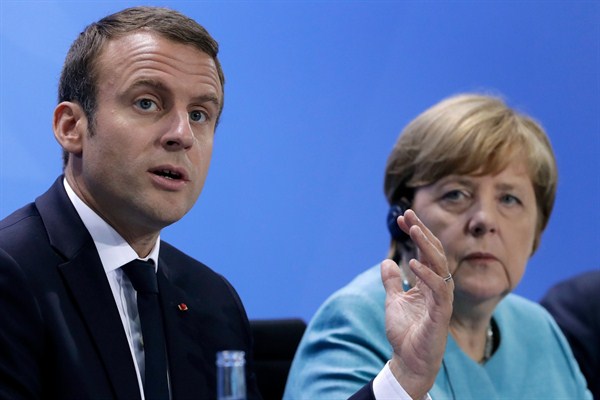Is the European Union finally out of the woods? Two years after the refugee and migrant crisis drove a continent-wide populist backlash, the existential threat to the union seems to be over. Optimism over signs of economic recovery is spreading, and the political landscape, though permanently altered in some places, seems to be recovering from the seismic upheaval of the past few years. Most importantly, the Franco-German partnership, historically the political motor of the EU’s development, seems to have regained its relevance, with both countries on solid footing domestically and in tandem.
But many of the underlying challenges facing the bloc remain stubbornly unresolved. How much of the current optimism is really justified?
In France, President Emmanuel Macron’s victory over the National Front’s Marine Le Pen in May, coming on the heels of Dutch voters’ rejection of Geert Wilder’s anti-EU Freedom Party, signaled that the worst of the populist wave had broken. The National Front’s subsequent descent into internal division and discord, despite its best showing in a presidential election to date, further demonstrated the difficulty of mounting a credible anti-EU platform outside the United Kingdom.

